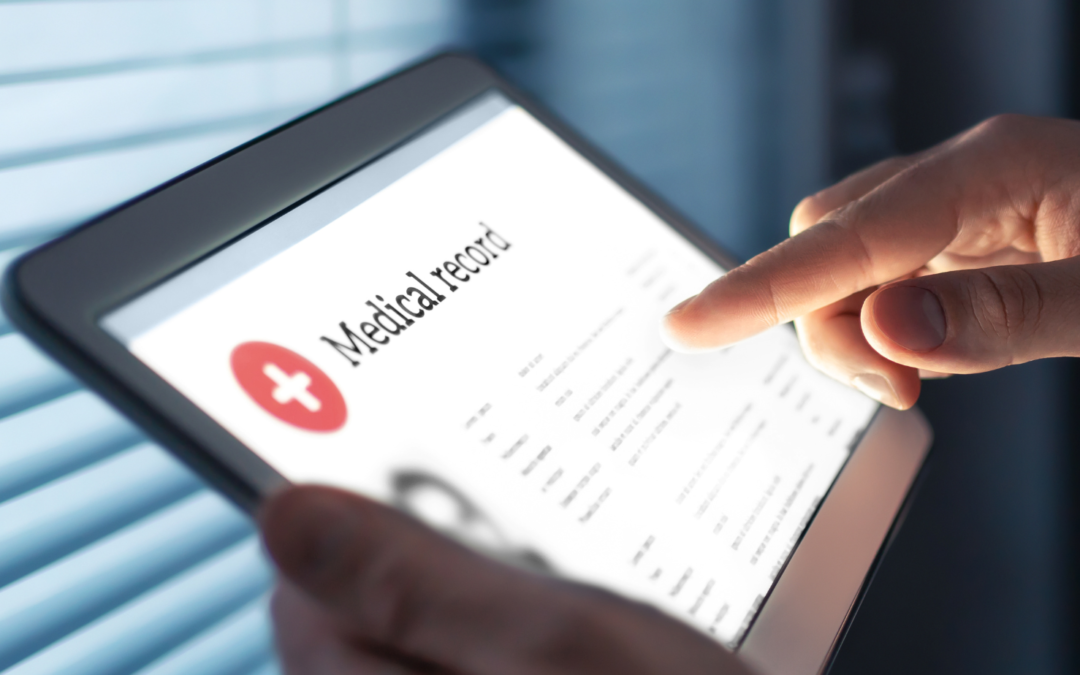Medically Reviewed By: Dr Douglas Slakey
Image Credit: Canva
Key Takeaways
- Protecting Sensitive Health Data: Cybersecurity in digital health is crucial to safeguard sensitive patient information, ensuring data integrity, and preventing identity theft and privacy violations.
- Maintaining Trust: Trust between healthcare providers and patients relies on robust security measures. Patients must have confidence that their health data is secure, especially in the digital landscape.
- Compliance with Regulations: Healthcare providers must adhere to strict regulations like HIPAA and GDPR, which mandate the protection of patient data to avoid legal repercussions.
Click Here to Book a Meeting with us
Introduction
The digital transformation is affecting so much of what we have been used all of our lives to doing in a certain way. And this “transformation” is being witnessed by the healthcare industry in a very pronounced manner, where digitalization (as opposed to mere digitization) is embracing technologies like electronic health records (EHRs), telemedicine, mobile health applications, and AI-driven diagnostics. Despite the undeniable benefits these advances promise to bring even in the immediate future, their application also exposes the industry to heretofore unseen security challenges – cybersecurity challenges, to be precise. Digital health is built on a pyramid of data, mostly the personal and health record of patients; information that is private, privileged and usually very sensitive in nature. Protecting this sensitive health data against cyber threats has become a paramount concern for healthcare providers, patients, and technology developers alike. In this blog, we will try to identify the critical aspects of digital health cybersecurity and educate ourselves on the measures needed to safeguard against potential breaches.
The Importance of Cybersecurity in Digital Health
1. Protecting Sensitive Data
Health records contain sensitive personal information. A clever enough culprit can steal a patient’s identity, commit financial fraud, and even violate a patient’s privacy. The security and integrity of this data is not just a technological necessity but also a legal and ethical obligation.
2. Maintaining Trust
The relationship between a healthcare provider and their patient relationship stands on the somewhat fragile foundation of trust. A patient will only be able to trust their healthcare provider if they have complete confidence in the security measures taken to protect their information, especially in a digital landscape.
3. Compliance with Regulations
Healthcare providers must comply with stringent regulations like HIPAA (Health Insurance Portability and Accountability Act) in the US and GDPR (General Data Protection Regulation) in the EU, which mandate the protection of patient data.
Emerging Cybersecurity Challenges in Digital Health
1. Ransomware Attacks
Ransomware attacks, where hackers lock access to data or systems until a ransom is paid, have become increasingly common, disrupting critical services and patient care, and healthcare data is as vulnerable as that of any other industry.
2. Phishing Scams
Phishing, where attackers trick individuals into revealing sensitive information, is a significant threat, especially with the increasing use of email and digital communication. Since patients already expect requests for their health related information – especially if they use devices communicating data on a scheduled or continuous basis – they are easy targets for phishing attacks.
3. Insider Threats
Not all threats are external. Insider threats, whether intentional or accidental, can lead to significant data breaches and security lapses.
4. IoT Device Vulnerabilities
The proliferation of Internet of Things (IoT) devices in healthcare, such as wearable health monitors, poses unique security challenges due to their interconnected nature and often limited security features.
Best Practices for Enhancing Cybersecurity in Digital Health
1. Regular Risk Assessments
Conducting regular risk assessments to identify and mitigate potential vulnerabilities in digital health systems is crucial.
2. Employee Training and Awareness
Employees in a healthcare business that offers digitalization and cyber-connectivity should be trained on cybersecurity in digital health best practices and be kept educated and informed about the latest phishing and social engineering tactics so they don’t even inadvertently compromise patient information.
3. Data Encryption
End-to-end encryption of sensitive data, whether at a server or while in transit, is essential to prevent unauthorized access.
4. Multi-Factor Authentication
This protocol has become very popular in the past few years, as it requires physical access to two separate devices for the identity authentication process to be completed. Implementing multi-factor authentication for accessing health systems can significantly reduce the risk of unauthorized access.
5. Regular Software Updates
Malcontents continue to find back doors in systems and exploit vulnerabilities they discover. The only way to protect oneself from their attempts is to constantly stay a couple of steps ahead, by keeping all systems and software frequently updated with security patches and occasionally replaced with new releases.
6. Incident Response Planning
Having a robust incident response plan with plenty of exercises involving mock attacks ensures that the organization can quickly and effectively respond to any security breaches.
The Role of AI and Machine Learning in Cybersecurity
AI and machine learning are becoming indispensable and unavoidable tools in cybersecurity. Given that these tools themselves are based on specific-purpose algorithms, they possess a higher ability to detect patterns indicative of cyber threats, predict potential vulnerabilities, and automate responses to security incidents. In digital health, these technologies can continuously monitor network traffic and user behavior, flagging anomalies that might indicate a security breach.
The Future of Cybersecurity in Digital Health
As digital health technologies become more diversified, the possibilities of exploitable vulnerabilities and avenues for attack will increase with them; the defenders of the healthcare cyberworld will be fighting a running battle to develop the cybersecurity strategies needed to protect it from these attacks. Future trends include the development of more sophisticated AI-driven security systems, increased focus on securing IoT devices, and greater collaboration among healthcare organizations to share best practices and threat intelligence.
Click Here to Book a Meeting with us
Conclusion
Cybersecurity in digital health is a complex and ever-evolving challenge. As the healthcare industry continues to integrate an increasing number of digital technologies with increasing levels of complexity, the importance of robust cybersecurity measures cannot be emphasized enough. By staying vigilant, implementing best practices, and leveraging advanced technologies like AI, the healthcare industry can protect sensitive data, maintain patient trust, and ensure the continuity of critical healthcare services. The cybersecurity strategies of the future require a sustained commitment to security, collaboration, and innovation in the face of rapidly evolving cyber threats.
MarkiTech has various subsidiaries with products and services targeted towards digital healthcare and telehealth/telemedicine and virtual clinic with laser focus on helping seniors age in place and help their caregivers.
Sensights.ai is a company focused on remote patient monitoring and aging solutions, which utilizes artificial intelligence to track the health of patients and keep a round-the-clock connection between caregivers and patients.
As well, Veyetals uses rPPG and AI modeling algorithms to capture the light reflected by the blood vessels under a patient’s skin to measure vitals anytime, anywhere.
Lastly, we are now launched our latest Mental Health AI Scribe tool called CliniScripts.com



